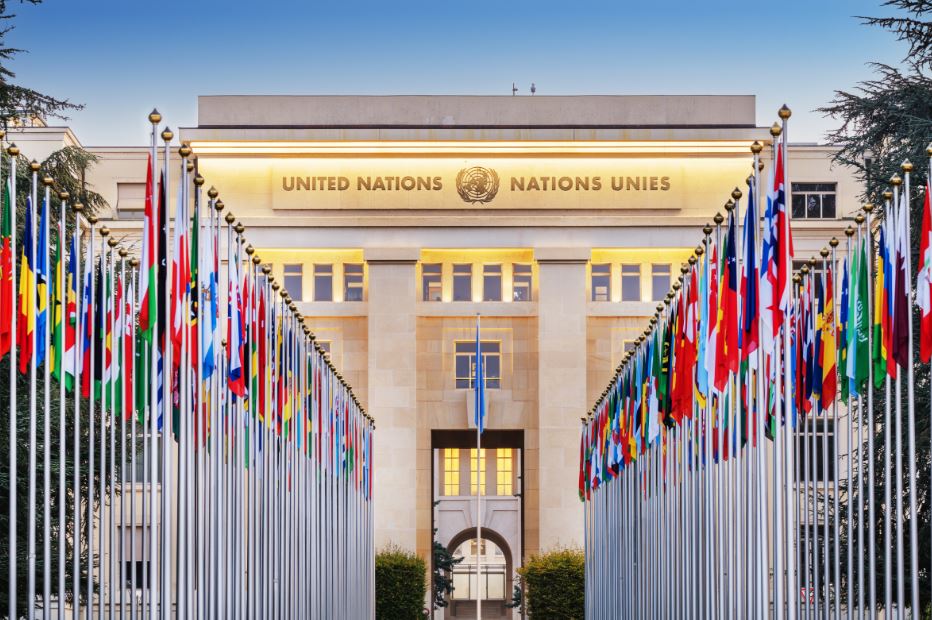🕊 UN Security Council Emergency Session
- Meeting opened at Iran’s request after U.S. strikes hit three Iranian nuclear sites—Fordow, Natanz, and Isfahan—executed by U.S. forces alongside Israeli actions reuters.com+3reuters.com+3yahoo.com+3time.com+10reuters.com+10foxnews.com+10.
- UN Secretary-General Guterres called the bombings “a perilous turn,” urging an immediate halt to fighting and a return to negotiations on Iran’s nuclear program reuters.com+1asiaone.com+1.
- IAEA Director Rafael Grossi confirmed tunnel entrances at Fordow and Isfahan were hit but said it’s too early to assess full underground damage. No elevated radiation was detected reuters.com+1asiaone.com+1.
🌐 Country Reactions at the UN (and beyond)
✅ Supporting the Strikes / U.S. Position
- United States (Amb. Dorothy Shea): Justified action as necessary to counter Iran’s delay tactics and nuclear ambitions tbsnews.net+15reuters.com+15time.com+15.
- Israel (Amb. Danny Danon & PM Netanyahu):
- Danon: U.S. action was “the last line of defense”—inaction could be “catastrophic” foxnews.com+9reuters.com+9reuters.com+9.
- Netanyahu praised the strikes as a historic move to block Iran’s nuclear path thetimes.co.uk+5reuters.com+5theguardian.com+5.
- Australia: Endorsed the airstrikes and urged diplomatic follow-up tbsnews.net+15reuters.com+15time.com+15.
- European E3 (UK, France, Germany): While firm on preventing a nuclear Iran, they underscored the need for non-military solutions and diplomacy reuters.com+2reuters.com+2reuters.com+2.
⚠️ Opposing the Strikes / Urging Restraint
- China and Russia:
- China’s envoy emphasized the damage to U.S. credibility and called on all parties—especially Israel—to restrain and return to diplomacy reuters.com+3en.wikipedia.org+3en.wikipedia.org+3asiaone.com+1reuters.com+1.
- Russia joined calls for an “immediate and unconditional ceasefire” .
- Pakistan: Backed Russia and China in pushing for the ceasefire resolution .
- Also domestic protests erupted in Karachi, with demonstrators denouncing the strikes and marching over U.S. flags reuters.com.
- Other UN/Nations: UAE, Qatar, Japan, New Zealand, Mexico, Italy, Oman, Lebanon, Norway, and Portugal voiced deep concern, urging diplomacy and restraint reuters.com.
- Venezuela & Cuba: Strongly condemned the U.S. airstrikes as acts of aggression .
- Iraq: Denounced the bombings as violations of international law, called for UNSC intervention .
🏛 U.S. Domestic Perspectives
- Republican senators like Roger Wicker and Jim Risch backed the strikes—but framed it as Israel’s war, not requiring direct U.S. boots on the ground reuters.com.
- House Democrats like Hakeem Jeffries and Alexandria Ocasio‑Cortez criticized the action as unconstitutional and potentially war-inducing without Congressional approval reuters.com+1foxnews.com+1.
🔥 Iran’s Position & Potential Response
- Iran’s UN Ambassador Iravani denounced the strikes as a misuse of the NPT and “blatant aggression,” saying Iran reserves the right to defend itself reuters.com+1reuters.com+1.
- Foreign Minister Araqchi warned of “everlasting consequences” and said no diplomacy until Iran retaliates—possibly including missile strikes, closure of the Strait of Hormuz, or targeting U.S. naval assets theguardian.com+3news.com.au+3asiaone.com+3.
- Iran retaliated with missiles against Israel, prompting civilian casualties and raising fears of wider regional warfare news.com.au+1thetimes.co.uk+1.
📌 Quick Summary Table
| Country / Entity | Position |
| U.S., Israel, Australia | Supported strikes to halt nuclear advancement |
| E3 (UK, France, Germany) | Agreed on non-proliferation, stressed diplomacy |
| China, Russia, Pakistan | Condemned strikes; pushed for ceasefire |
| UAE, Qatar, Japan, etc. | Called for de-escalation and dialogue |
| Venezuela, Cuba, Iraq | Strong condemnation of U.S. action |
| UN Sec‑Gen | Warned against escalation; urged negotiation |
| Iran | Denounced strikes; vowed strong defensive retaliation |
✅ Key Takeaways
- UN Security Council met urgently, with major powers divided.
- U.S. and allies justify strikes as necessary to stop Iran’s nuclear program.
- Most others advocate diplomacy, fearing legal violations and conflict.
- Iran vows retaliation, signaling a dangerous potential new phase in regional tensions.

